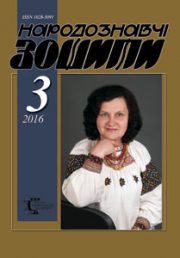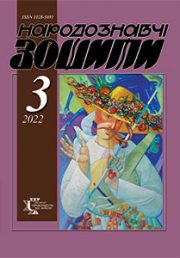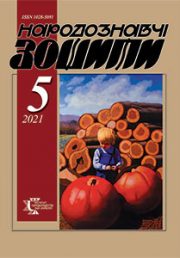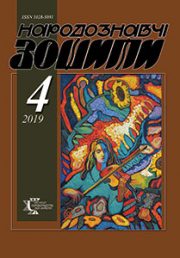The Ethnology Notebooks. 2022. № 6 (168), 1361—1366
UDK 378.4.091.113(430.129=161.2)”1945/1950″І.Мірчук(092)
DOI https://doi.org/10.15407/nz2022.06.1361
IVAN MIRCHUK — THE FOUNDER OF UKRAINIAN HIGH SCHOOL IN EMIGRATION
KOKOSH Artem
- ORCID ID: https://orcid.org/0000-0003-4785-2190
- Doctor of Philosophy, Historical Sciences and International Relations,
- Lviv Polytechnic National University;
- Ukrainian Free University,
- 12, Stepana Bandery str., 79013, Lviv, Ukraine,
- Contacts: e-mail: akokosh22@gmail.com
Abstract. This research is an attempt to describe Ivan Mirchuk as a person accompanied by explaining historical background of the scientists. Ivan Mirchuk was a person who could rise up the question of Ukrainian scientific and educational centres abroad. He was well known among European scholars, taking part in Italian, German, French and other conferences. Since 1921 Ivan Mirchuk worked at the Ukrainian Free University in Prague. After World War II the professor moved to Germany and dreamed to renew the Ukrainian Free University. Moreover, the Rector was one of those who could provide the Decree of Bavarian Ministry. The Rector cooperated with German professors, officials and ministers, American military officials and Ukrainian academy society to prove the same level of Ukrainian institutions abroad.
In spite of great work in educational field abroad, the person is not known enough in Ukraine. The biography of the Rector, his international projects and positions in Ukrainian institutions are not studied. Lack of information of Ukrainian science in exile proves actuality of the paper. The paper shows steps of Ivan Mirchuk heading Ukrainian institutions abroad in the field of international cooperation in science. Among the archive materials are correspondence between Ivan Mirchuk and Gans Egard, Roman Holiat, Byelorusian students of Munich, the agreement with the Institute for Soviet Union studies, lecture journal, funding letter etc.
This article gives new information about Ukrainian science abroad. The results of the research prove the leading place of the scientist in the field of Ukrainian international relations at time of the Soviet Union. His ability to communicate with European officials could change their attitude toward Ukrainian science and lead to the Decree of Bavarian Ministry in 1950.
Keywords: Ivan Mirchuk, Bavaria, the Ukrainian Free University.
Received 19.10.2022
REFERENCES
- Kokosh, A. (2021). Institutional Formation of the Ukrainian Free University in Bavaria (1945—1950). Munich [in Ukrainian].
- (1948, 21 march). The Institute for Ukrainian Culture in Spain. Ukrainska Trybuna (P. 5) [in Ukrainian].
- Polonska-Vasylenko, N. (1971). Ukrainian Free University. Ukrainsky Istoryk (Pp. 17—27) [in Ukrainian].
- Stetsiuk, V. (1974). Professor Ivan Mirchuk. Zbirnyk na poshanu Ivana Mirchuka (Pp. 255—262). Munich [in Ukrainian].
- Dr. Roman S. Holiat (1962). Short History of the Ukrainian Free University. Papers (P. 33). New-York: Shevchenko Scientific Society.
- Mirchuk, I. (1956). Introductory Word. Naukovy Zbirnyk Ukrainskoho Vilnoho Universytetu (Pp. IX—XVII). Munich [in Ukrainian].







